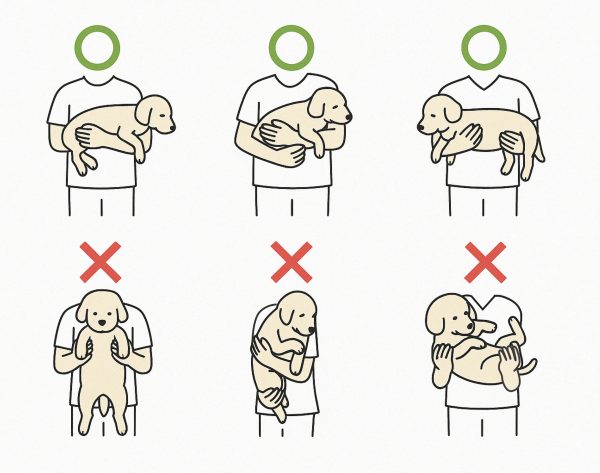Over the years, my two Bichon Frises (Nico and Molly) have rarely gotten sick. But as they’ve grown older, a few health issues began to appear, some typical of the breed, others more specific to their individual needs. Through these experiences, I’ve learned a lot about natural care, early detection, and the importance of working closely with a trusted veterinarian.
In this article, I’ll share the conditions my dogs have faced, how we treated them, and what really worked, especially when aiming for gentle, long-term health solutions.

👂 Otitis (ear infections)
This was the first condition I had to learn to manage when my Bichons were still puppies. Their fluffy, wool-like fur often grows into their ear canals, trapping moisture after baths. This leads to recurrent otitis externa, an inflammation of the outer ear canal often caused by yeast or bacterial overgrowth.
What it looked like:
A dark brown, waxy discharge
Scratching and head shaking
A strong odor from the ears
What helped:
After every bath, I used ear drops with eucalyptus oil and aloe vera, which helped prevent irritation and moisture buildup.
I gently cleaned their ears with cotton (never cotton swabs inside the ear canal).
When infections worsened, I used Epiotic Spherulites by Virbac—an advanced ear cleaner that worked wonders by the second use. (Always consult your vet before using new products.)
👁️ Dry eyes
Around age 7, one of my dogs began to keep his eyes half-closed. He had a sticky, greenish-yellow discharge, and I initially thought it was an eye infection.
What worked:
Our vet recommended lubricating eye drops to reduce friction and inflammation.
What truly helped was food-grade liquid coconut oil—the kind that stays liquid at cold temperature. Thanks to its natural antibacterial properties, applying two drops in each eye 2–3 times a day cleared the issue completely.
We now maintain with coconut oil just a few times a week, and he’s had no recurring symptoms.
🦴 Anterior cruciate ligament (ACL) rupture
At 13 years old, one of my Bichons jumped abruptly while playing, resulting in an ACL tear in his right hind leg, a common orthopedic injury in dogs.
Treatment options we explored:
We opted for surgical repair with traditional sutures, not titanium plates, due to his age and the lower risk of complications.
Post-surgery, we focused on pain management, rest, and gentle rehab.
Our vet also stressed the importance of bone broth and gelatin-rich collagen for long-term joint health. We now include chicken feet broth and natural gelatin in their weekly meals.

🐶 Fatty liver (hepatic lipidosis)
This diagnosis came unexpectedly when both my Bichons were 5 years old. Their liver enzymes were elevated during routine tests, and the vet suspected their high-processed, dry food diet was to blame (before changing to BARF).
What we did:
Consulted a canine nutritionist, who had experience with cancer and liver cases.
We followed a homemade diet: cooked chicken or turkey breast, carrots, celery, potatoes, and rice, plus supplements and vitamins.
After a month, test results showed an 80% improvement. Over time, we added raw foods and fresh vegetables in moderation.
Today, my dogs’ liver values are healthy, and we’ve never gone back to processed kibble.
😮 Kennel cough
This dry, honking cough is usually viral (like Bordetella) but can also stem from tracheal collapse, especially in small breeds like Bichons.
Our approach:
Immediate vet visits when symptoms appear.
During cold weather, we keep their necks warm with scarves, even indoors.
Avoiding ice-cold food and drinks in winter.
We limit contact with unknown dogs during flu seasons and walks, as it’s highly contagious.
Prevention is key with this one.
🧴 Dermatitis (skin allergies)
My Bichons suffered from recurrent dermatitis, red, itchy skin that flared up unpredictably. After years of treating symptoms, we finally uncovered the root cause.
Breakthrough discovery:
We used Tritohexidin Plus Spray during severe flare-ups (always under vet supervision), followed by gentle oatmeal-based shampoos.
Eventually, we switched their diet and began an elimination food trial, feeding only one protein and one carb per day (e.g., fish + rice, chicken + potato).
After a week, we discovered their allergy was to wheat and grains.
Since eliminating those ingredients, the dermatitis has completely disappeared.
🦴 Low back pain (lumbosacral disease)
One of my dogs developed lower back pain, and X-rays showed pinched nerves and mild spinal compression, likely from years of jumping off beds and being carried vertically like a baby.
What changed our routine:
No more stairs or sudden jumping.
We started using a ramp for bed access and taught them to sleep in their own beds beside ours.
We bought a dog stroller to reduce walking strain.
We only carry them horizontally, supporting their spine.
Warm water baths with gentle massages reduced pain significantly.
Thanks to these adjustments, she regained mobility and comfort without needing surgery.

🐾 Final thoughts: treat the cause, not just the symptoms
One of the biggest lessons I’ve learned is that many chronic conditions in Bichon Frises can be prevented or managed naturally, especially through proper nutrition, gentle handling, and close attention to their environment.
💬 My top advice?
Get to know your dog’s body and behavior.
Work with a veterinarian who supports long-term, holistic care.
Stay curious and informed, natural options often complement traditional medicine.
✨ Also, build a strong relationship with your veterinarian, feed your Bichon a balanced diet, and focus on preventative care. Regular checkups, clean ears, dental hygiene, and lots of cuddles go a long way.
Caring for a Bichon Frise’s health requires patience, observation, and love. Every dog is unique, and while some may never experience major health issues, others might need a little extra support as they age.
Your fluffy pet deserves the best!
